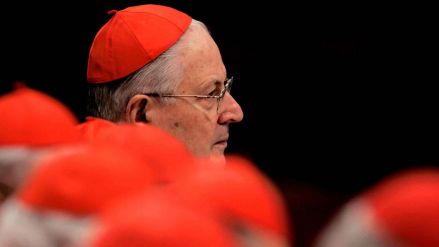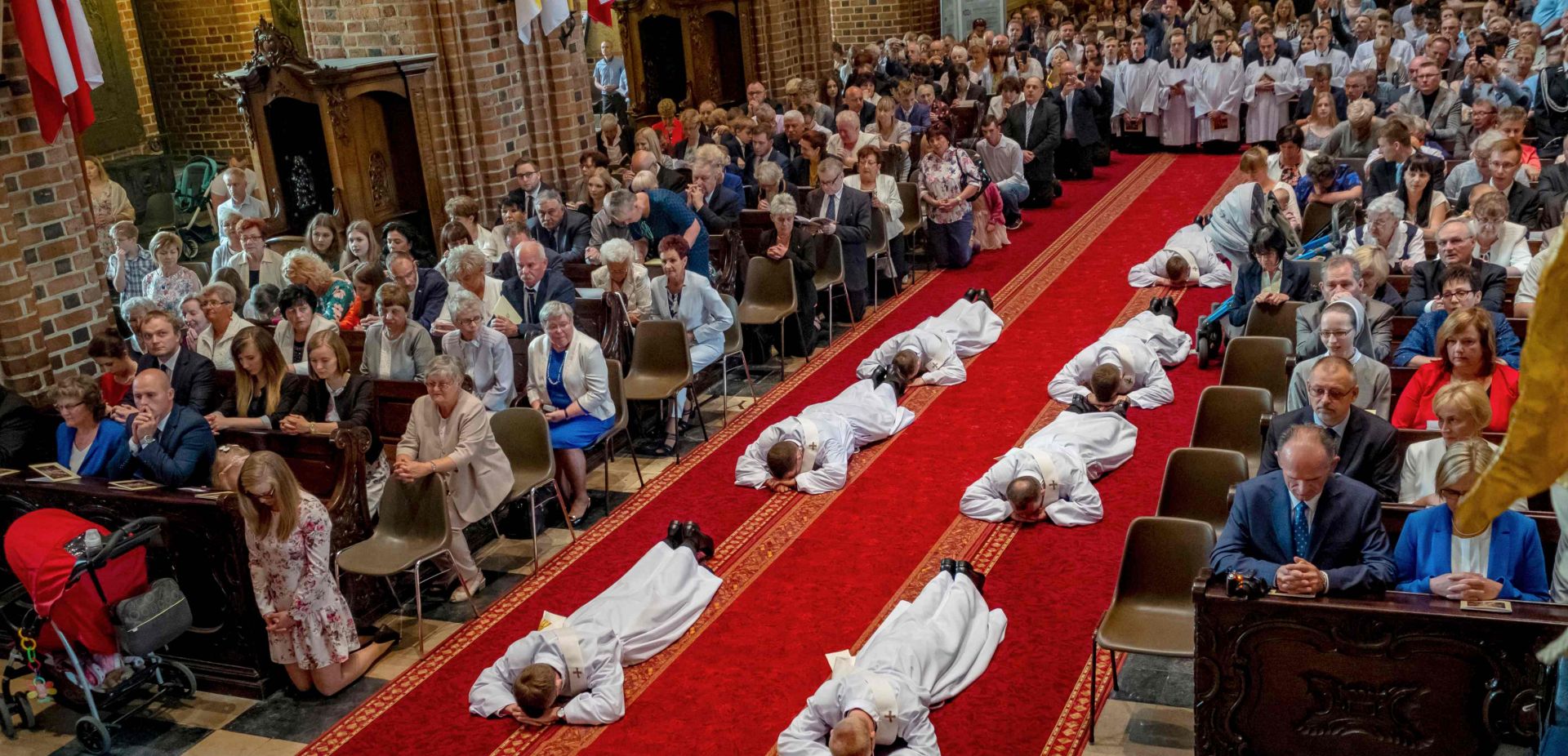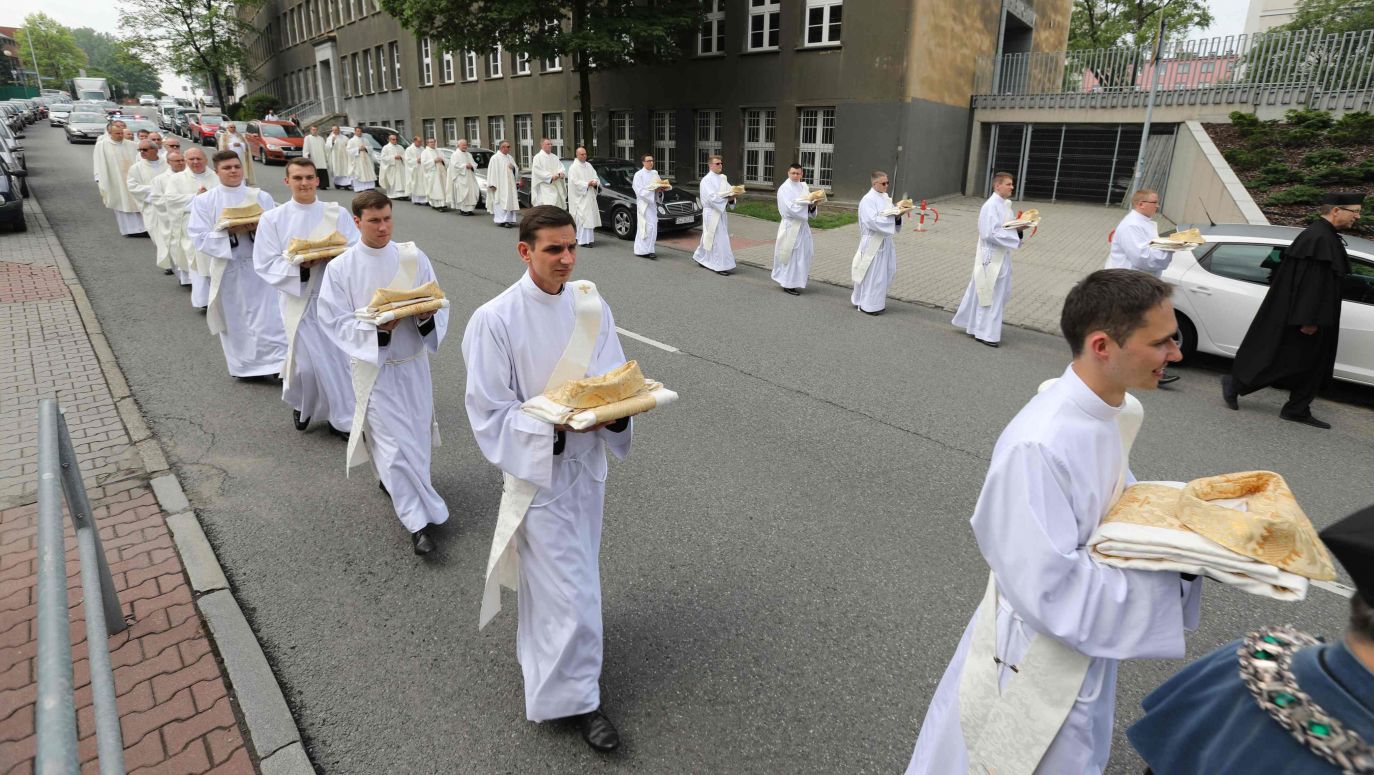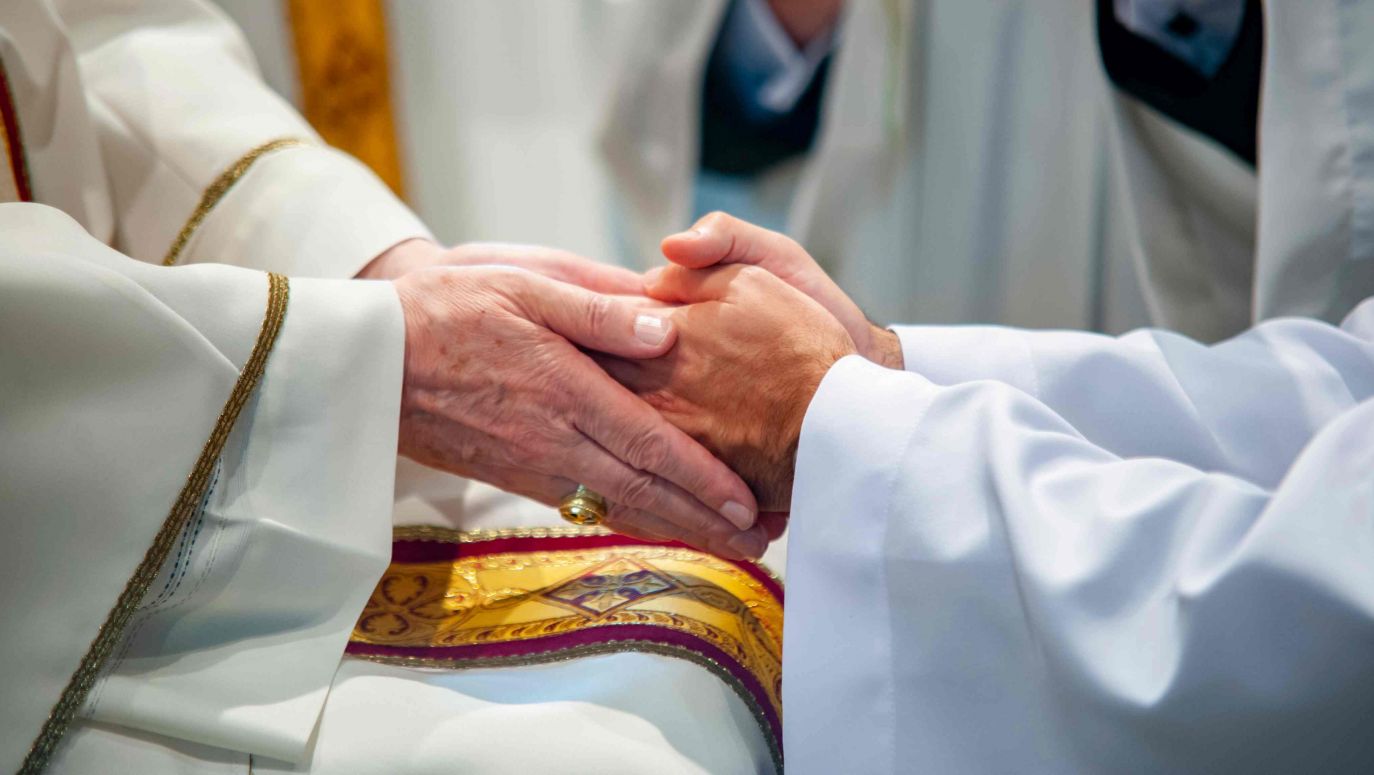What you can't see from the leftist bubble
15.06.2022
Priests, even young ones, even those just entering priestly life, are 'obligatorily' shown today in the context of paedophilia, gays, greed, rapacity, lust for power and so on. As if the authors of all these articles, comments and posts did not live among us, did not know anyone who goes to church every Sunday.
Rembertów, a suburb of Warsaw, a Sunday morning on 5 June: through empty streets, a joyful group of not only young but also slightly older people, singing and surrounded by flowers, lead in a procession a young priest from his family home to the festively decorated Church of St Lucia, where parishioners, friends and acquaintances are already waiting. They have come for his Primate - the first Mass for a priest after ordination.
This is not an everyday sight, and is even becoming rarer. The number of new priests is decreasing, which is particularly noticeable in June, because it is the best month for priestly ordination and every diocese proudly announces its neopresbyters, as a newly ordained priest is officially called today. I will not say young, because they are not always the youngest, more and more often mature men go to seminaries, after graduation, with professional experience.
This is a completely new situation; a separate seminary was even established for these oldest candidates for the clerical state, in Łódź, but this is a story for a completely different article. Just like the decrease in the number of candidates, even drastic, though I must note it.
I'm not going to review and discuss the reasons for this decline, although this thread looks like a good morsel, judging by the opinions of various authors, also from the Catholic world. Surely, one can have a lot of fun in journalism, describing departures from the clerical state, sexual crimes and related deceptions, ecclesiastical 'careers' of pseudo-authorities, etc. But how much can these themes be repeated? I myself have written many times, also in these pages, that the older generation did not take care of some very serious matters, also in the Church, and now they are surprised why authorities are falling and vocations are declining, not to mention leaving the Church.
However, the subject is much more complicated, and the strength of the Church is not sociological analysis - although, of course, it is necessary to reflect on the problems and analyse them - but something quite different. The strength of the Church is God and people of faith, and these will not be lacking, even if they are only a handful.
The seminaries are emptying not only in Poland. In our country the phenomenon is only beginning. There is already a Vatican recommendation that if it is necessary - as finances and statistics show - seminaries should be joined together if there are not enough seminarians. However, dioceses do not really feel like doing it because what is theirs is theirs, candidates mature in their own local environment (although this is probably illusory since a new priest is being educated for the whole universal Church!), under the watchful eyes of their bishop and diocesan funds are also known to be divided. After all, seminaries are maintained by the faithful who, according to the statistics, are fewer and fewer, even if they are more and more wealthy.
No one noticed
Let me go back to the beginning: to the joyful procession that goes through the streets of Rembertów on a Sunday morning and leads to church a boy in a cassock whom everyone knows and likes because he is from here. He grew up and grew up here, here he served Mass with his brothers as an altar boy, and here six years ago - as a student at the Polytechnic - he served the Primate Mass for his older brother (this is an unusual story, but not as rare as it may seem, so I greet other priests I know and their brother-priests). It is not only his family that is rejoicing with him - and there are about twenty cousins, aunts and uncles, even from very far away, to show their support - but several hundred people in Rembertów and the surrounding area. It is, after all, a great celebration for the parish and very many friends in Warsaw, where the young priest went to school, studied, developed in the Przymierze Rodzin (Family Alliance) association, went on holiday camps, simply lived among people and built relationships.
This is why his ordination to the priesthood is a social event, not only affecting his parents and siblings, his parish priest and the rector of the seminary, but becoming part of the history not only of the Church, but of Poland and of the world.
This was beautifully demonstrated in Rembertów by Father Wacław Szcześniak, a parish priest who is now retiring and who has been greatly loved and respected in this locality for many years. He told us about his Primate Mass from years ago, to which he was accompanied - still as a deacon - by Father Jerzy Popiełuszko, whom they had met and befriended in the army, so this historical moment from the history of communism also appeared.

What did John Paul II do to curb sex crimes in the Church?
see more
And we already have this year's young priest - and his brother, also a priest - inscribed in the long line of Polish history. Someday, perhaps in half a century, each of them - and may they live as long as possible - can tell his successors that his parish priest was a friend of a martyr murdered by the Communists. This is how experience is passed on, this is how history is made.
A private matter?
It does not matter whether there are four, eight or ten such young priests in the diocese, the entry of each of them into a new way of life is an event with far-reaching social consequences. It is not a private matter of this or that boy, of this or that family.
But this is no longer noticed, shown or commented on, and if so, only negatively. Priests, even young ones, even those just entering priestly life, are "obligatorily" shown in the context of paedophilia, gays, greed, rapacity, lust for power and so on. It is as if the authors of all these articles, comments and posts do not live among us, do not know anyone who goes to church every Sunday (or even during the week), does not experience any good because of it, is not happy to be a Catholic. Or as if they have no intention of seeing or knowing about it at all. Are they so warped that they are unable - and have no intention - of seeing any good outside their own circle of values, and certainly not among people of faith? Are they unable to use reason to see another world?
In recent days a certain - but not lasting - commotion in the social media was caused by a post of a newly ordained young priest, whose profile was flooded with a wave of unkindness, rudeness, vulgarities and coarse slander when he wrote about his ordination. For what reason? Because he became a priest?
There are no reports or articles in the media considered "opinion-forming" about priests who work positively in many areas, not to mention the basic one, which is pastoral work with the faithful in parishes. Priests - and nuns who are not noticed in any context although they do so much good - run self-education circles and inspire to deepen their knowledge (because biblical knowledge is also knowledge!), go to the mountains with young people, organise sports competitions, go on pilgrimages around the world (because, contrary to appearances, Poles do not only go to Egyptian resorts for 'last minute' holidays), organise charity circles, senior citizens' clubs and libraries.
A few years ago, during a panel discussion, Dr Barbara Fedyszak-Radziejowska, an excellent sociologist with extensive research interests, strongly shook up the gathered audience, showing the obvious - and completely ignored - aspects of this phenomenon, which is seminary studies and the annual entry into society of a new group of educated, with knowledge (better or worse, but nevertheless) of foreign languages, spiritually formed young men with a specific life path, prepared - better or worse, but nevertheless - to work with other people, patriotically oriented. Are their knowledge and skills being put to good use - she asked then - are they being noticed and are we even aware of their existence? Are they present in our thinking? The questions are dramatic, and the answers even more difficult than then.
The same as us
Two brothers from this family in Rembertów, two brothers from another family in Warsaw, three brothers from Lublin - where in the media outside the Catholic circle can the reader find reports about such families who not only bring up their children in the spirit of the highest values but also influence others with kindness, culture, respect for every man, diligence, knowledge and skills? How is the good they create supposed to have an impact if their existence is not even acknowledged?








